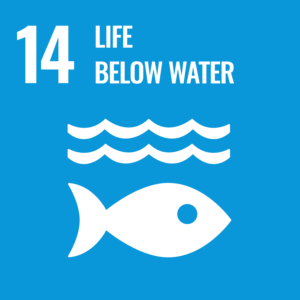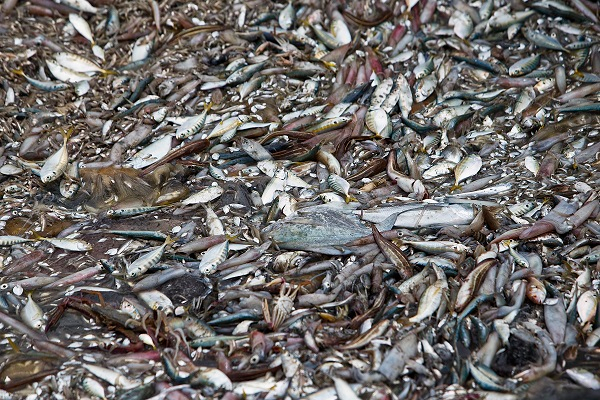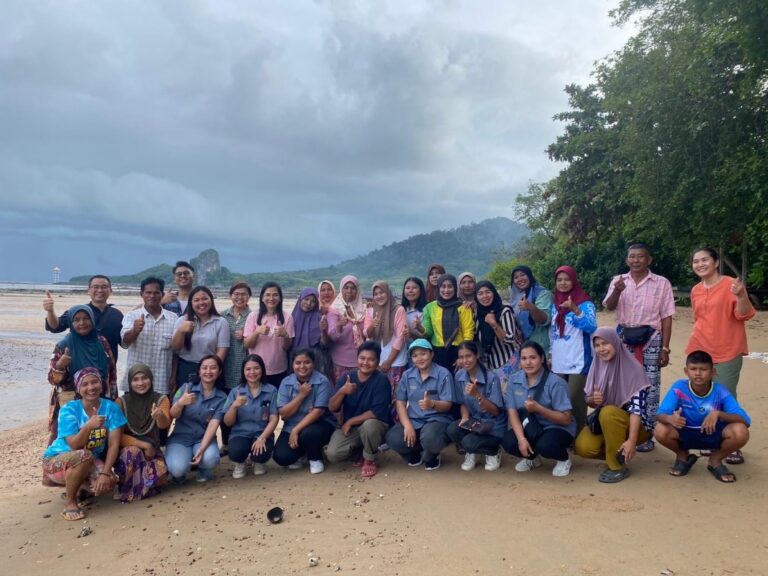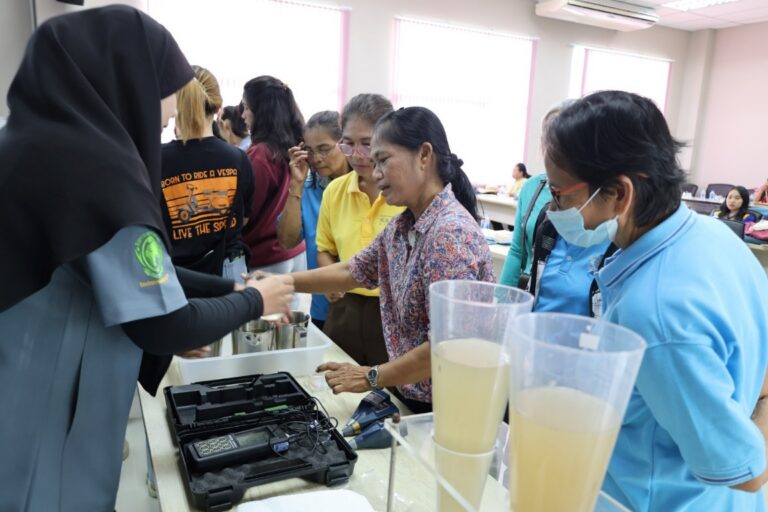Reporters: Dr. Chanyut Sudtongkong
Asst. Prof. Aneak Sawain Miss. Kanokwan Juhong
Evidence Date: 17 October, 2024
Related SDGs: SDG 14
Related Indicator: 14.4.3
Sustainability and Stewardship
RUTS Policies and Actions Against
Marine Plastic Pollution
October 13, 2025

Plastic pollution remains one of the most urgent environmental crises of our time. Each year, more than 300 million metric tons of plastic are produced, with at least 14 million tons entering the oceans. Plastic now constitutes roughly 80% of all marine debris, impacting ecosystems from surface waters to the deep sea. Major sources include inadequate urban waste management, industrial and construction runoff, and illegal dumping.

The effects of plastic pollution are extensive and multifaceted. Marine organisms suffer high mortality from entanglement and suffocation, while ingestion of plastic debris leads to digestive blockage, malnutrition, and starvation. In addition, plastics release toxic chemicals that bioaccumulate through the marine food web, posing health risks to humans who consume contaminated seafood. Economically, coastal tourism and fisheries are severely affected as beaches become polluted and fishing gear is damaged.
Rajamangala University of Technology Srivijaya (RUTS) is actively supporting the United Nations Sustainable Development Goals (SDGs) through policies and actions to reduce plastic waste and marine litter. Students, faculty, and institutional partners collaborate through key initiatives such as:
-Garbage Bank Program: Converts plastic waste into income through organized collection and sorting.
-Ban on Single-Use Plastics: All RUTS campuses have eliminated single-use plastic bags.

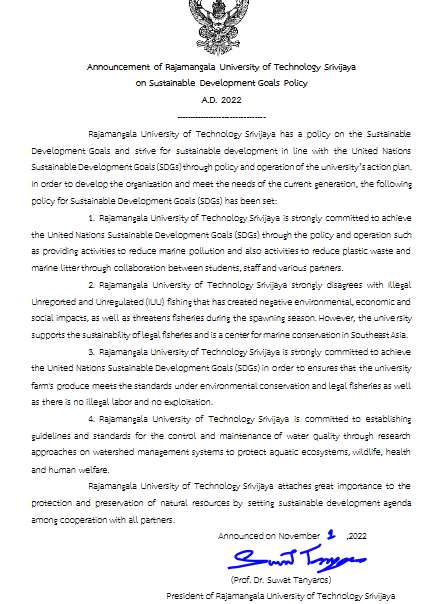
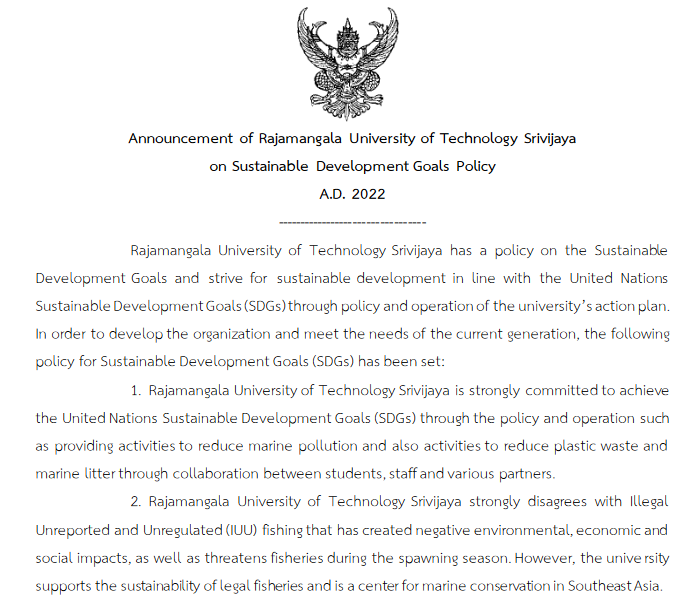
These collective efforts reflect RUTS’s commitment to sustainable development and the protection of marine ecosystems.



In addition, RUTS has launched several initiatives in Trang Province to reduce plastic waste and marine litter. These efforts include:
-Conducting research on the sources and impacts of marine pollution in the region.
-Developing and implementing educational programs to increase public awareness of marine pollution and its consequences.
-Partnering with local communities and businesses to promote sustainable practices and reduce plastic waste.


Related Links:
https://fishtech.rmutsv.ac.th/ruts/wp-content/uploads/2024/10/IMG_5895-scaled.jpg
https://statute.rmutsv.ac.th/file/306797.pdf
https://statute.rmutsv.ac.th/file/3718.pdf

